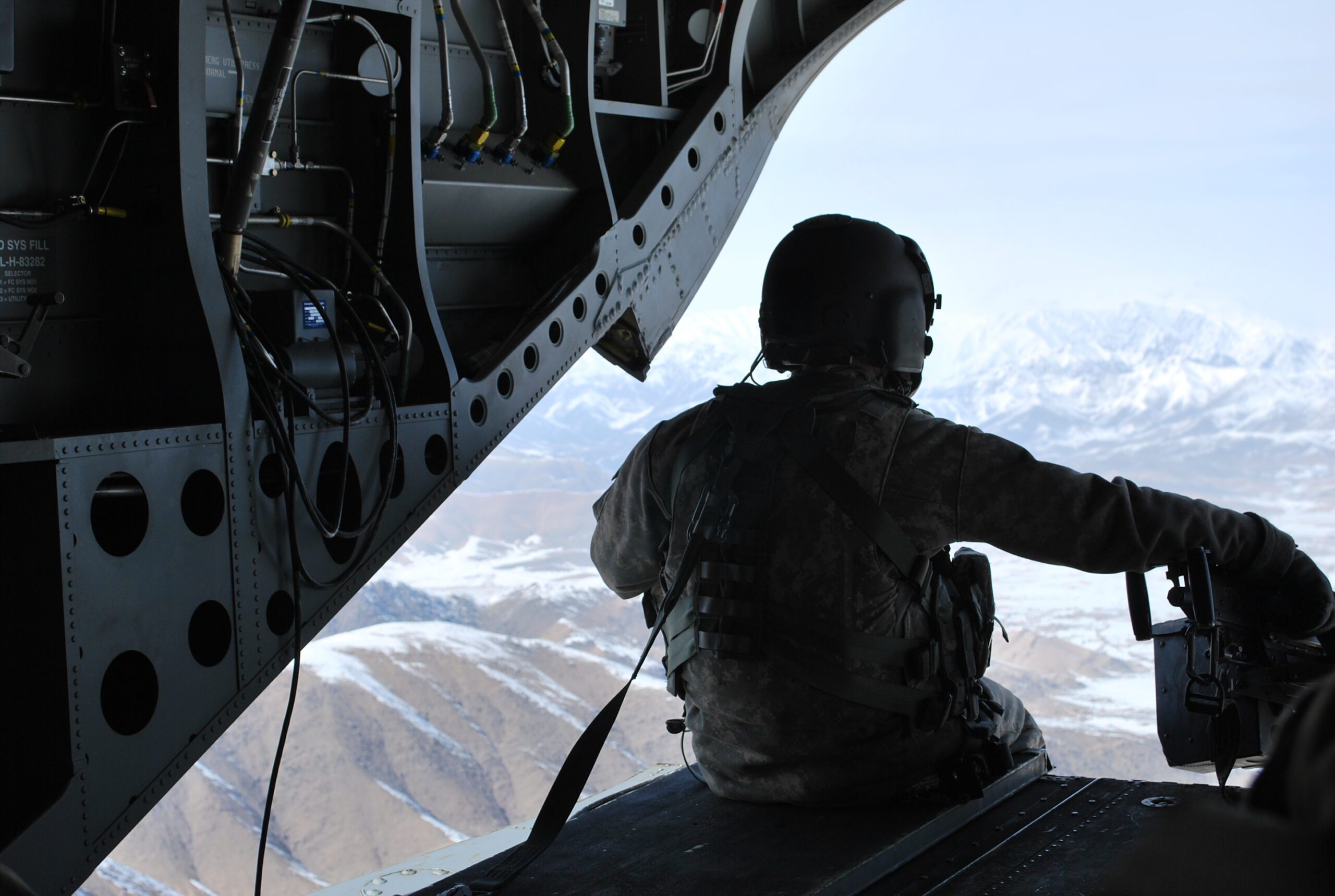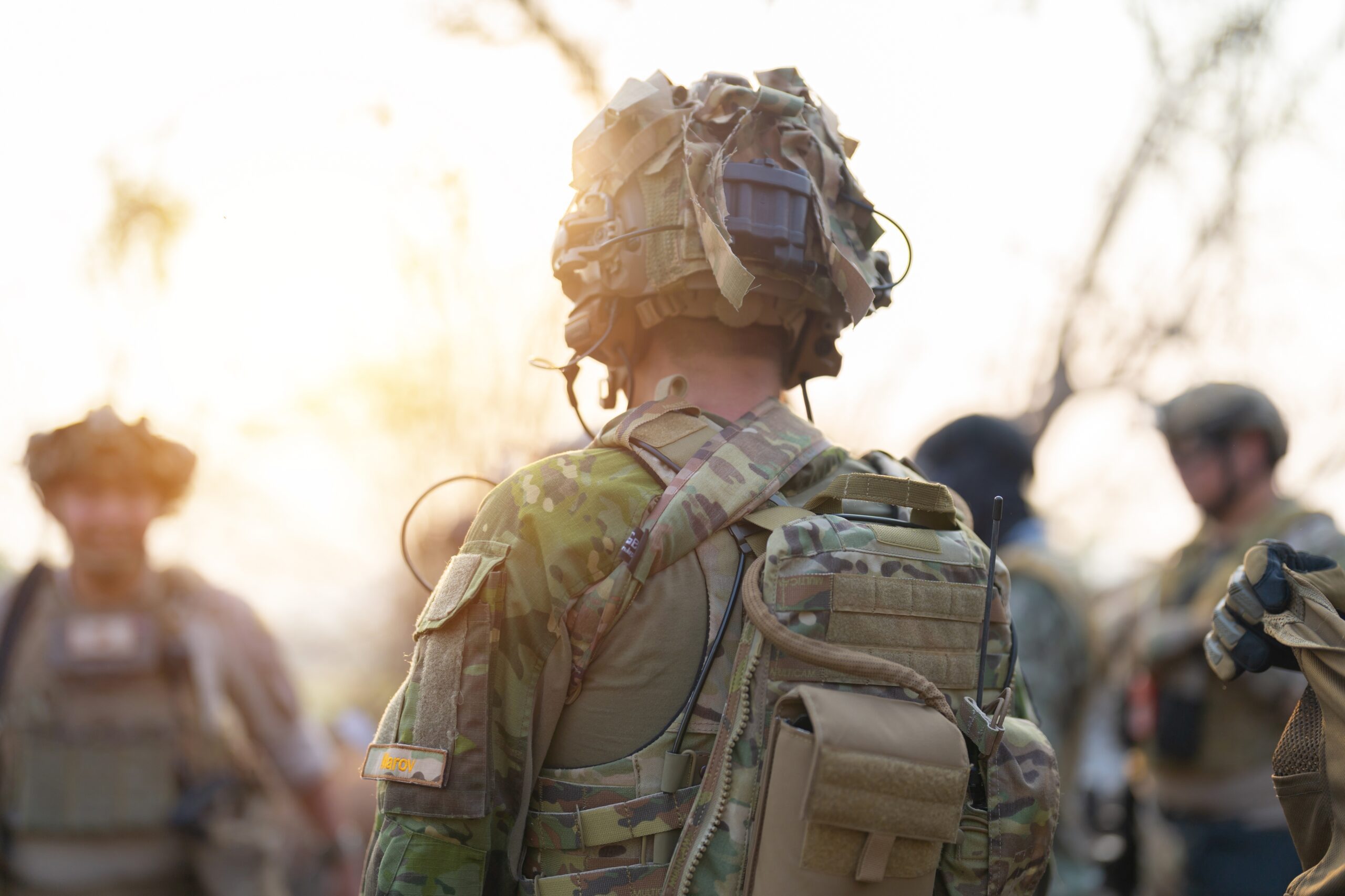Dr Robert Lyman MBE FRHistS is the Defence Strategy Director for McLaughlin and Harvey. When he’s allowed time off work, he writes books on military history and contemporary strategy. This blog is written in his capacity as a historian. He can be found at www.robertlyman.com.
Armed Forces Day is an opportunity to celebrate the men and women of our Army, Navy and Air Force as they serve to protect our country and its interests.
Remembering the past
I think it reaches beyond this. Armed Forces Day allows us to reflect on the nature of defence more broadly in a year that marks the 80th anniversary of the end of the Second World War. Eight decades is a long time, and direct memories of history’s greatest conflict are now fading. Very soon, there will be no one alive who experienced its horrors.
The direct connection we have with an existential war, when the very survival of our country was threatened by a rampaging evil that cost the world perhaps 100 million lives, is quickly being lost. It’s now the job of historians to keep its memory alive. However, recalling the sacrifices of the wartime generation, who preserved the freedoms we enjoy today in our democracy, is not just a role for historians.
Collective responsibility for defence
All of us have a duty to consider the issues of defence. Why? Well, like the fire brigade, defence has an important role in keeping us safe. How? I was at an event with the company last week, considering the Strategic Defence Review, when someone in the audience asked, “Why do we need more men in the Army? We aren’t at war; no one is fighting us?”
It’s a fair question and needs a response. The first one I would offer is a counter-question: “Do you insure your car against an accident?” Of course you do, not merely because it’s the law. It is common sense to take precautions against accidents, and insurance is one of them. We never know when they will happen. Accordingly, we insure our homes, and whenever we travel we make sure we are insured against accident, delay or emergency. It’s exactly the same with defence. We need to pay our insurance premium for defending our country against threats, no matter how vague these might appear at any one time.
I might add that, as a historian, I consider Western Europe to be in as perilous a position in terms of defence and security as it has ever been in modern history. It’s certainly as dangerous as the late 1930s. The Russian Armed Forces are continuing to wage an unprovoked war in Ukraine, continuing a pattern of aggression against its neighbours that began as long ago as its annexation of Georgia in 2008. Russian forcibly annexed Ukrainian territory in the Crimea in 2014 and began military operations in the eastern part of the country, all designed to force Ukraine to bow to Moscow’s will. The full invasion of Ukraine followed in February 2022.

But why?
But why is this of interest to us? My simple answer is that any regional instability of this kind, a little like a bushfire, has a nasty habit of spreading. Allowing Russian aggression to run unchecked in eastern Europe, as history attests, could lead to Russia thinking that it has carte blanche to do what it wants in Europe, in spite of the strictures of international law, which forbid military aggression against another country for any reason other than self-defence.
We have a duty to prevent President Putin from doing what he wants. It was the failure to prevent Hitler from treading all over Czechoslovakia in 1938, in a policy known at the time as appeasement, that led directly to the Second World War. It is this we need to prevent.
So, how do we do it? One way is to ensure that we have strong defences, able to contribute to our NATO allies within a security framework that has worked very successfully since 1949.
Defence as an effective deterrent
But there is another reason why defence is important. It’s because strong defences can themselves be effective deterrents against bad behaviour by states like Russia. There is a strong belief among strategists today that Russia became emboldened to invade Ukraine in 2022 precisely because it believed that NATO, and the West in general, was too militarily weak to oppose it.
I think this is true. If NATO had presented itself, along with the European Union, willing and able to stand up to the sort of territorial aggrandisement we saw in Ukraine, Moscow almost certainly would not have taken the chance it did. But NATO’s defences – as well as the U.K.’s – have been hollowed out by several decades of ‘peace dividend’ cutbacks, and we were in no position militarily, or politically for that matter, to stand up to Russia’s aggression when it happened.
My argument is simple: if the U.K. and its allies had the requisite military forces to support Ukraine before the Russian attack, it’s likely that Russia would not have taken the chance it did. Deterrence works, as demonstrated by many decades of Britain’s Continuous At Sea Deterrent (CASD).

Learning from the Second World War
There is a compelling example I often cite to illustrate how military deterrence could have prevented the Second World War from ever happening. After 1919, the U.K. dramatically demobilised its Army to the extent that, within a year, it would have been unable to refight any of the great battles that brought the war to an end in 1919. Fifteen years later, Hitler decided to send his troops back into the Rhineland, that area of western Germany demilitarised by order of the Versailles Treaty.
However, Hitler and his generals were concerned about the potential reactions of the British and French to Germany’s unauthorised reoccupation. They had decided to withdraw their forces at the first sign of a response from either London or Paris. In the event, Hitler need not have worried. France and Britain did nothing, directly encouraging Hitler’s territorial ambitions elsewhere in Europe. In part, this was because the U.K. was unable to intervene militarily on the continent in 1938 or 1939.
The British Government could not threaten the Germans with something it did not possess. The impressive capability it had boasted in 1918 no longer existed. This is the problem with deterrence; it only works if you have the forces to make it credible. Today, it is arguable that we have lost the deterrence effect, at least insofar as land forces are concerned. Putin’s rampant aggrandising in Ukraine seems to be proof of this.
So, this is my response to the person at the conference last week. First, we need our Armed Forces as an insurance premium in case the unexpected fire of war sweeps once more towards our shores, or those of our friends and allies.
Second, we need our Armed Forces to act as a deterrent to those who might wish to do us harm, or behave badly, as Russia is currently doing in Ukraine, by breaking international law and disturbing the peace of the world. The Armed Forces of this country and our allies exist to protect us, not merely from war if it were to occur, but to prevent it from happening in the first place.
Paying tribute to all in uniform
Armed Forces Day is an opportunity for all of us to pay tribute to those who don a uniform on our behalf. It is this fundamental reality of military service that Armed Forces Day is designed to recognise. In Rudyard Kipling’s famous poem ‘Tommy’ (‘It’s Tommy this, and Tommy that…’), he mocks those who disparage the men in uniform who guard you while you sleep.’
In 1942, at the lowest point of the Second World War, George Orwell observed that ‘People sleep peaceably in their beds at night only because rough men stand ready to do violence on their behalf.’
Orwell should of course have included ‘women’ in his comment, as by 1942 millions of women had joined the ranks of the Armed Forces and had donned uniforms to support the war effort in a variety non-combat ways, such as in factories and as Land Girls labouring on farms to produce much needed food for a nation besieged.
The further we move away from a common, collective remembrance of these events, however, the more important it is to understand exactly why our Armed Forces remain critical to our security and the preservation of peace in the world.
